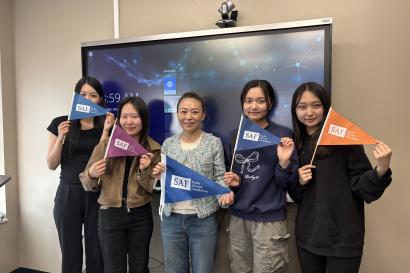In the wake of COVID-19, virtual learning has become a critical tool for educators. With school closures commonplace and social gatherings restricted, it’s both more responsible and effective to simply move to online classrooms.
This does, however, present a challenge for many study abroad programs which - for the most part - rely on in-class learning environments and the appeal of cultural immersion. But the widespread shift to online teaching also presents some unique opportunities to meet the needs of language students around the world.
“Through virtual programming, we may actually find ways to provide academic options to students at a wider range of language levels,” says Brett Rumminger, director of Study Abroad Foundation (SAF) Japan.
Speaking at a recent SAF webinar panel discussing the Japanese market, Rumminger explains why a shift to online learning could ultimately mean better access to and engagement with students who previously may have been excluded from study abroad opportunities due to language scores.
“We’ve seen interest in programming that would include weekly review sessions, aimed specifically at lower-level language students, in order to supplement the standard content of virtual programs,” says Rumminger. “Many students have also seen the benefits of virtual programming in that it allows for students to absorb content at their own pace.”
That’s not to say that the move to online teaching hasn’t created obstacles for overseas institutions, who now find themselves competing with home universities that offer their own language programs, taught virtually by foreign faculty.
But it’s likely that these courses may ultimately fail the long-term needs of foreign language students, who are seeking more than just textbook encounters.
“From our perspective, the most important benefits that SAF and host universities can bring is a diversity of students and a high level of interaction with native speakers,” says Rumminger.
“Japanese students are similar to American study abroad students – they’re looking for the overall experience, and to ultimately increase their language skills and cultural understanding.”
From online social and cultural activities to remote conversation partners, student tutors, and virtual homestays and group projects - these are all ways to add value to the study abroad experience, without anyone ever having to go abroad. An added benefit of adapting to online education is the likely outcome that international travel and study will continue to be affected for the foreseeable future. While Rumminger believes that online classrooms will remain a popular option in a post-pandemic world, the firsthand appeal of study abroad experiences will retain its appeal.
“We expect there will be a market for virtual programming even after travel restrictions are lifted and student mobility returns, but again, the main attraction for Japanese students may ultimately be the level of interaction with native-speaking students and the local community.”




